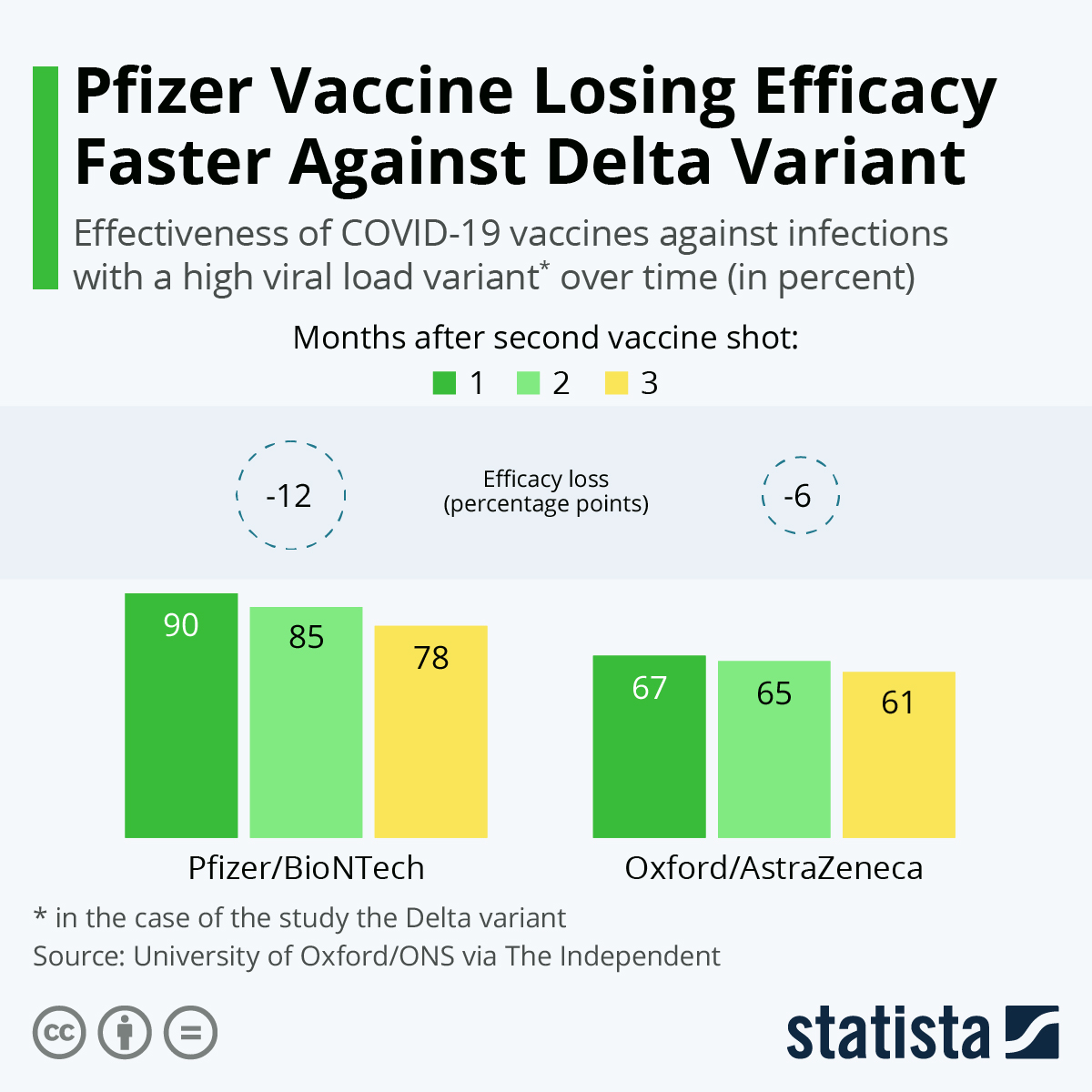A new study out of the UK has shown that the effectiveness of the Pfizer/BioNTech vaccine is waning faster than others when up against a high viral load mutation of the coronavirus, like the Delta variant. The study comes at a time when several countries, among them prominent users and early adopters of the Pfizer vaccine like the U.S. and Israel, have announced they will be giving out third doses of coronavirus vaccines, so-called booster shots. Since both the U.S. and Israel have been experiencing a rise in new infections, the countries are hoping to increase immunity among those having received a coronavirus vaccine through the additional shot.
According to a summary of the study results published by The Independent and others, the Pfizer vaccine was 90 percent effective against high viral load infections one month after the second dose. This declined, however, to 85 percent after two months and 78 percent after three months, a loss of twelve percentage points. The study also looked at the Oxford/AstraZeneca vaccine, which is widely used in the UK, Europe and elsewhere. For this vaccine, its effectiveness only declined by 6 percentage points, from 67 percent to 61 percent, over the same time period. Despite the fact that the Oxford/AstraZeneca vaccine starts at a much lower initial efficacy, the researchers calculated trajectories that would see the two vaccines at about the same effectiveness after around five months post full vaccination.
The results of the study, which is the largest of its kind to date, have not yet been peer-reviewed. The researchers also noted that despite the declines, both vaccines remained effective at preventing infections by any variant, including Delta, while they were also still very effective at preventing hospitalization or death in the case of a COVID-19 infection.





















